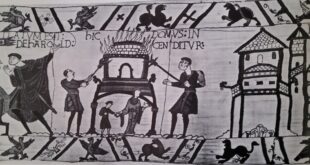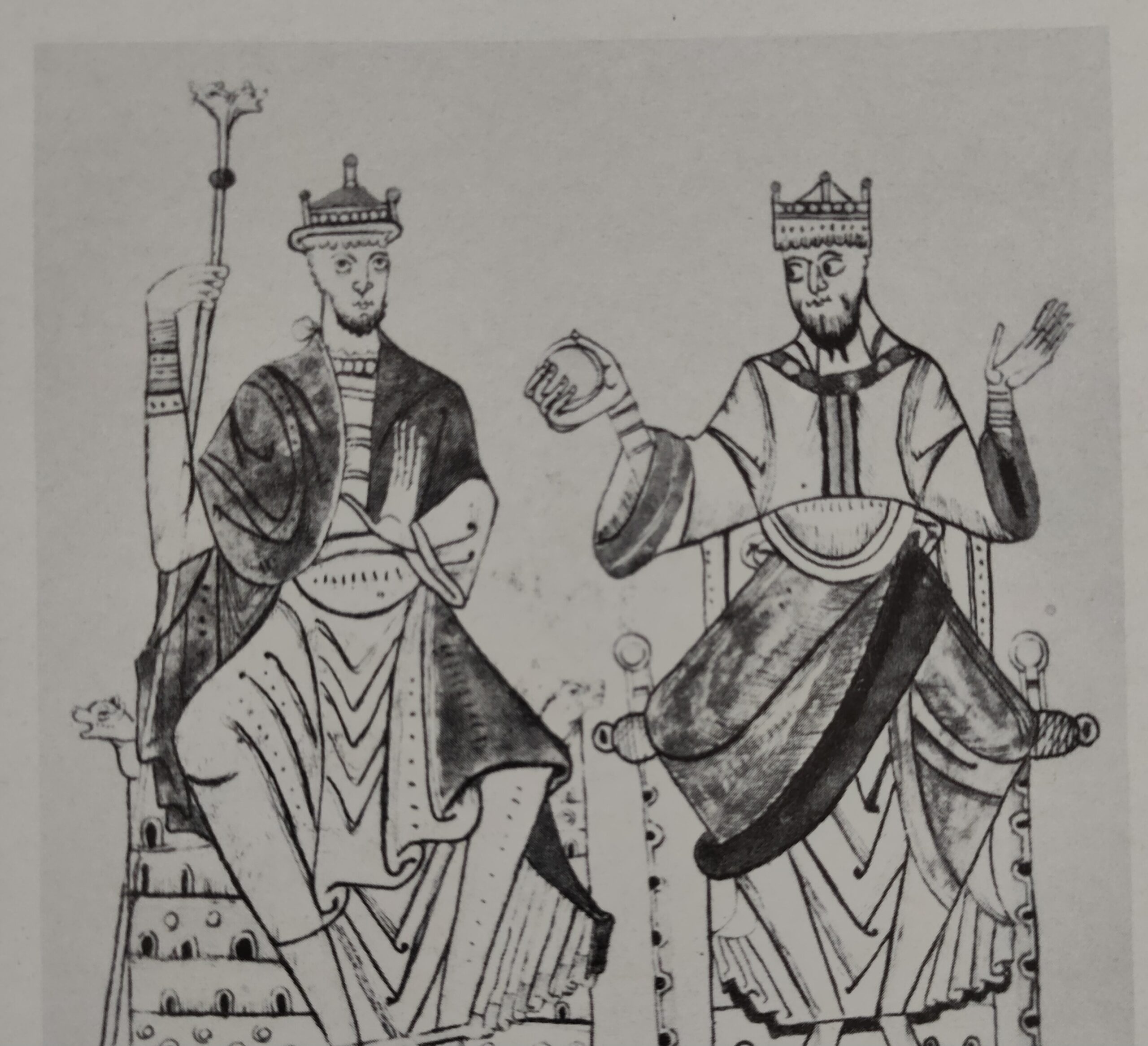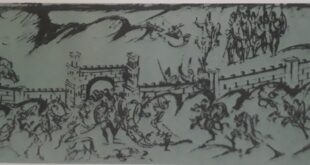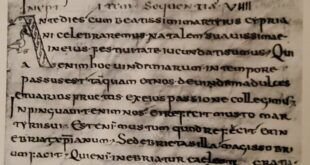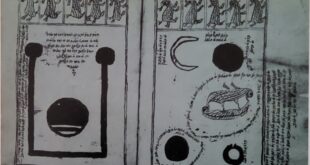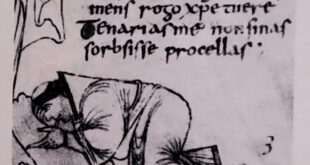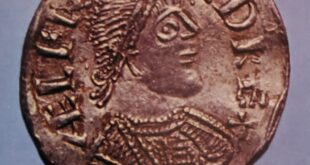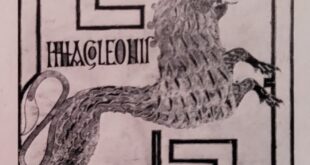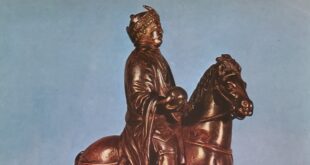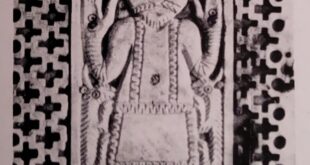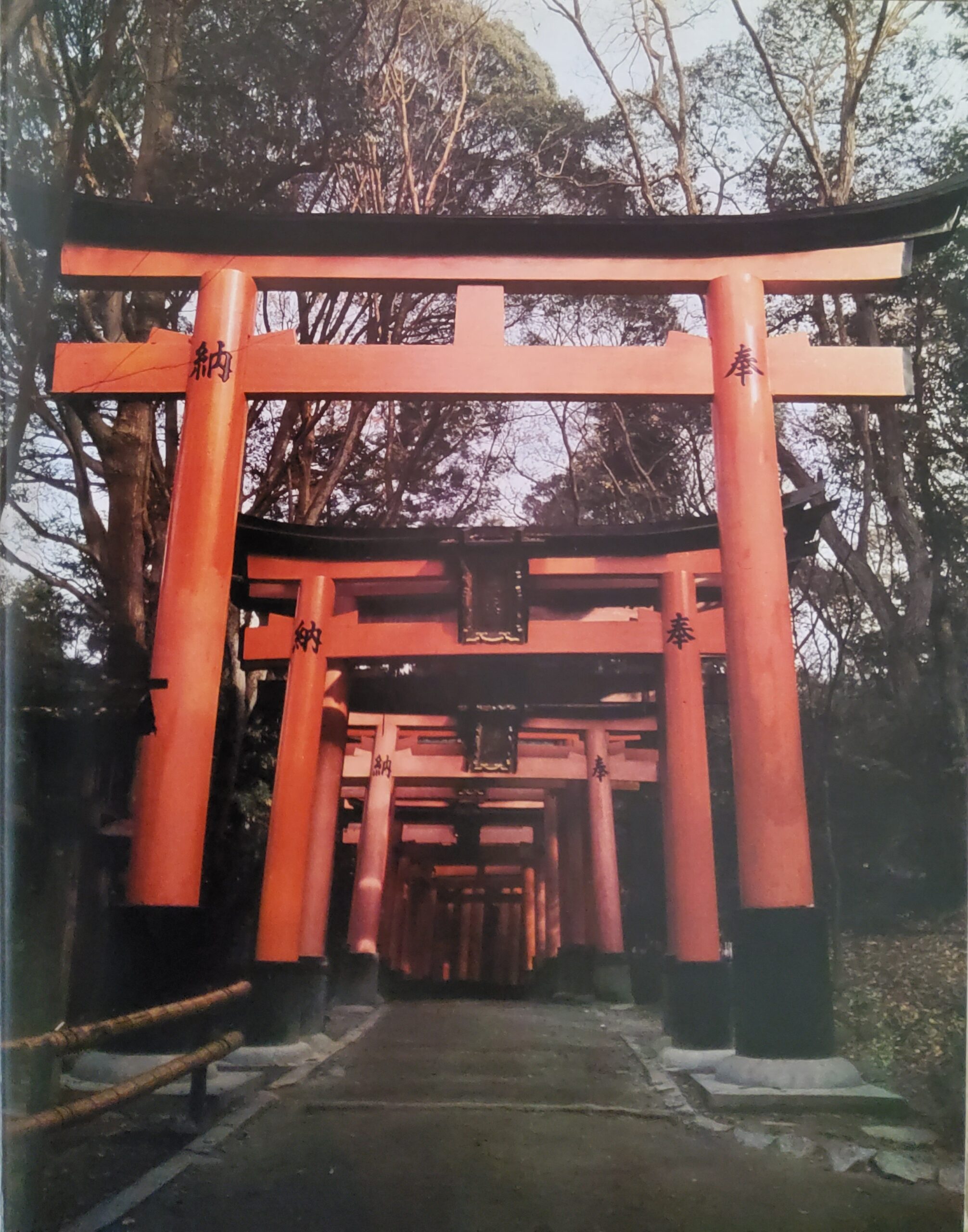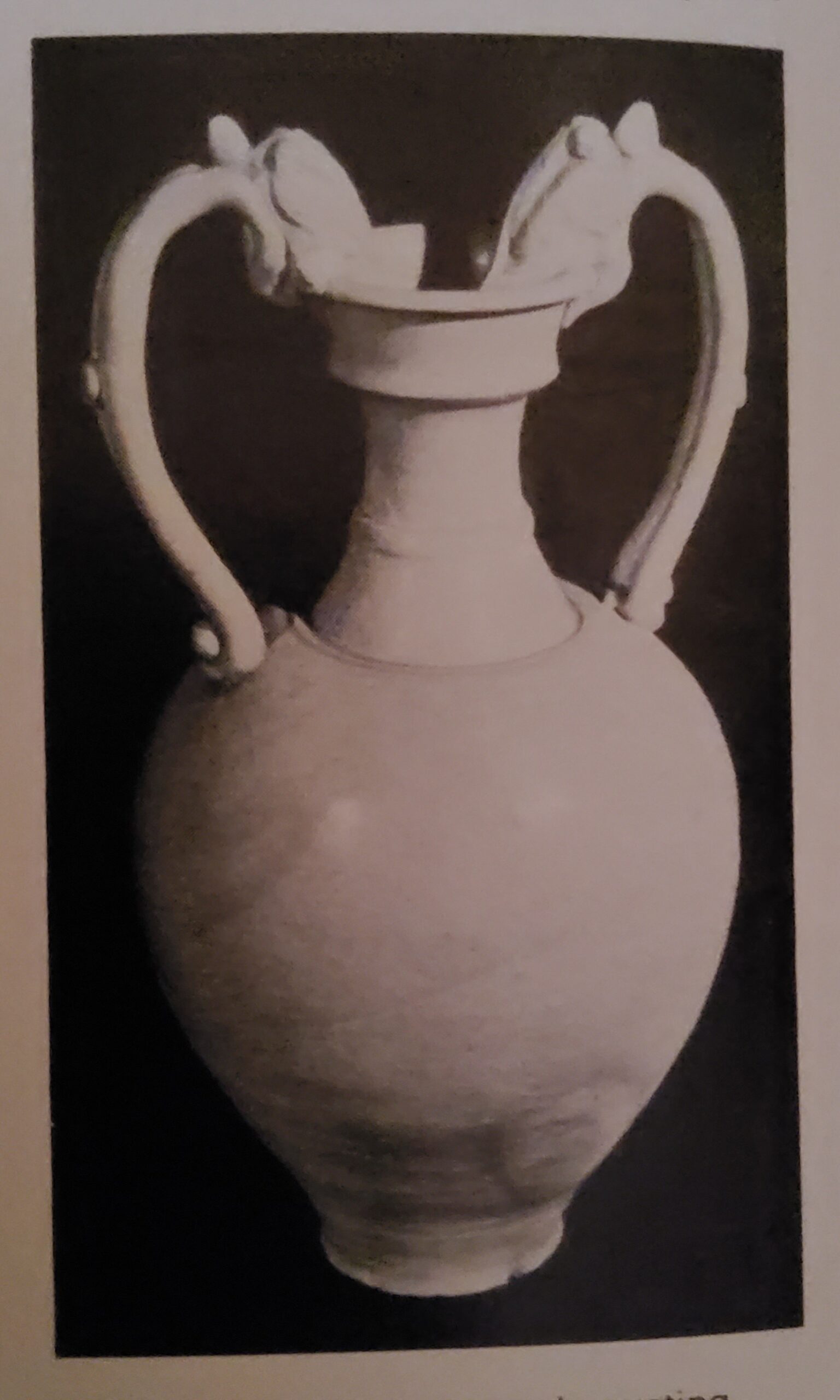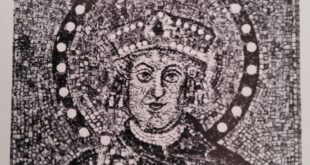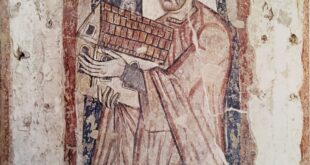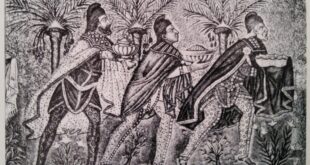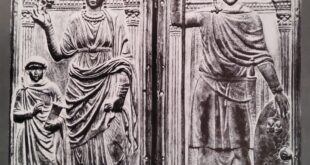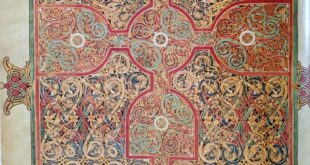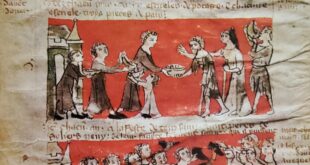Not everyone approved of this policy. The country people, whose farms were being devastated every year by the invading Spartans, were ready for peace. So was Aristophanes. In 424 he won first prize with the Knights, a comedy in which he himself played the part of Cleon. So savagely satirical were the lines he had written for this character that no one dared make him a mask to wear. So he smeared his face with red juice and went on the stage without a mask. Cleon for all his power, could not retaliate.
In the following year (423) Cleon went campaigning against the Spartan Brasidas in Thrace, but luck deserted him. He had served as a general, but never in a lower rank, so he was bound to blunder sooner or later. He gave a wrong order, which exposed his men to the enemy and was killed as he tried to escape from the rout. His wounds were not in front.
Two years later (421) peace was made. Prisoners and certain conquests were returned. There had been ten years of war and the turbulent Cleon was dead.
Aristophanes wrote a comedy called the Peace, which looked forward to happier times. In fact there were depths of viciousness and folly which the Athenians had not yet explored.



